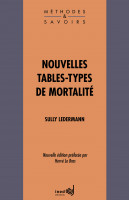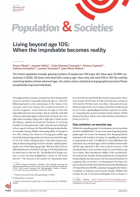
@@src2@@
Lost generations: The demographic impact of the Great War
Population and Societies
n° 510, April 2014
The 1914-1918 war is remembered for the sheer scale of human losses: at least 18% of the soldiers enlisted in the French army - some 1.5 million men - died in uniform. Using data from the latest historical and demographic research on military and civilian losses, the author compares the carnage of the First World War with another great scourge, that of infant mortality, whose order of magnitude was similar.






















